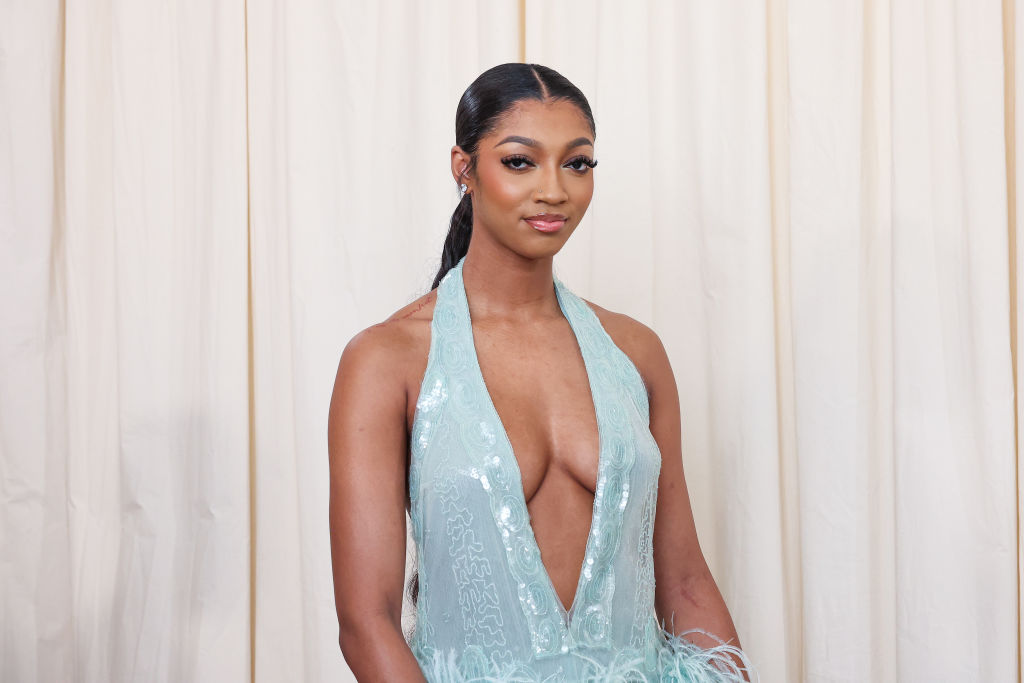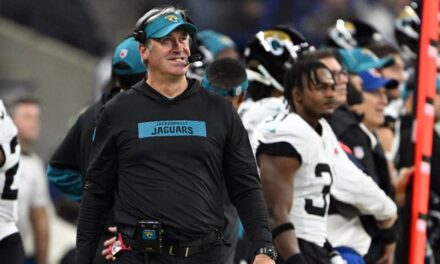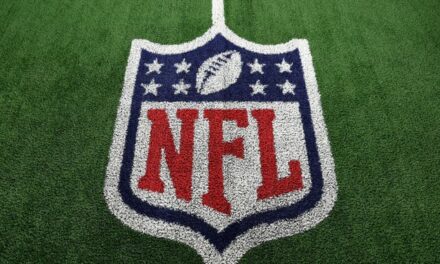We support our Publishers and Content Creators. You can view this story on their website by CLICKING HERE.

WNBA forward Angel Reese is the latest cover girl for Vogue Magazine. In the edition, the magazine celebrates Reese’s passion for both basketball and fashion.
“It’s always been both: basketball and fashion,” Reese told the outlet. “I was a fashion girlie from young too. That desire to look finished applies on and off the court: Reese earned her Bayou Barbie nickname at Louisiana State thanks to her penchant for glamming up for games.”
Great, but why just Angel Reese?
Why couldn’t Vogue have put the entire WNBA on the cover? Reese is certainly not the only player in the league who cares about both fashion and basketball.
Caitlin Clark, Breanna Stewart, and Cameron Brink also showed off their snazzy wardrobes before their games last season. Reese did not introduce the crossover between fashion and basketball.
Vogue’s decision to feature only Angel Reese on the cover is disrespectful to the other women. One player is not bigger than the entire league, and singling out just one player could create hard feelings.
And what about all the players before her? The black women who paved the way for Reese and her generation to play in the WNBA today? We cannot forget about the HERstory of the game.
Do you see how ridiculous, manufactured, and pathetic this argument is? Can you picture the anti-white racists fuming across their screens as they read our every line?
Perhaps our faux argument demonstrates how farcical the argument was that Time should have featured the “entire WNBA on the cover” as opposed to just Caitlin Clark, who was named Time Athlete of the Year for 2024.
Here’s what Washington Mystics owner Sheila Johnson had to say from a December 13 interview with CNN:
“This year, something clicked with the WNBA and it’s because of the draft of players that came in. It’s not just Caitlin Clark, it’s [Angel] Reese. We have so much talent out there that has been unrecognized. And I don’t think we can just pin it on one player.
“You read Time Magazine, where Caitlin Clark was named Athlete of the Year. Why couldn’t they have put the whole WNBA on that cover and said ‘The WNBA is the League of the Year’, because of all the talent we have?
“When you just keep singling out one player, it creates hard feelings.”
Should we expect Sheila Johnson to make a similar plea to Vogue over its feature on Angel Reese? Of course, not.
Johnson, a co-founder of Black Entertainment Television (BET), will have no issue with the magazine celebrating Reese. Angel Reese is black. Caitlin Clark is white. In the WNBA, and to people like Johnson, those two basic facts make Reese the protagonist and Clark the antagonist.
Now, back to reality.
Clark deserved to win Time Athlete of the Year. No athlete in America did more for their respective sport in 2023 than Clark did for the WNBA. She transcended the brand like an athlete hasn’t since Tiger Woods did the golf course in the early 2000s.
The WNBA set several television records this past season, mostly thanks to Caitlin Clark. Clark was featured in all 16 of the most-watched regular-season games.
Moreover, 31 percent of Johnson’s total home attendance for the Mystics over the entire 2024 season came from the two games versus Caitlin Clark and the Fever. Johnson, Reese, and all the other mean girls should thank Clark for the fame, packed arena sales, television ratings, and merchandise sales.
As for Vogue, sure. Honor Angel Reese for her fashion.

 Conservative
Conservative  Search
Search Trending
Trending Current News
Current News 





